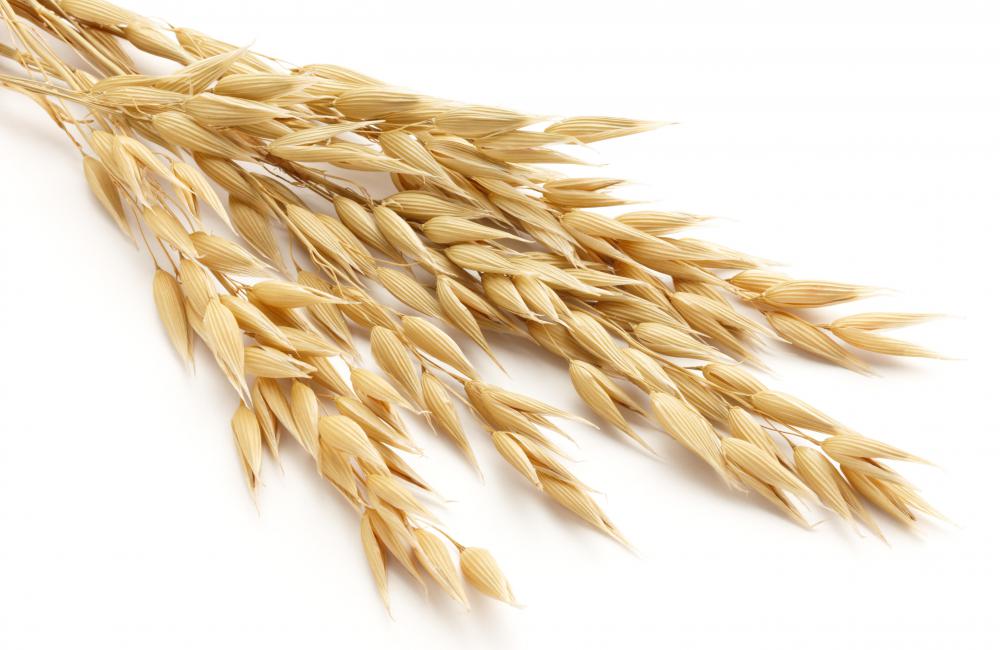At WiseGEEK, we're committed to delivering accurate, trustworthy information. Our expert-authored content is rigorously fact-checked and sourced from credible authorities. Discover how we uphold the highest standards in providing you with reliable knowledge.
Do I Need to Take Fiber Supplements?
Deciding to take fiber supplements is a decision best made with your physician, since certain conditions and medications may be complicated by such supplementation. Under no circumstances should you give fiber supplements to children, unless a doctor recommends this. Instead, helping a child increase intake of dietary fiber slowly, through adding extra fruit, vegetables and whole grains is a much better method than offering fiber supplementation.
There are many people who might benefit from taking fiber supplements. If you are on any opiate-based pain medication, even an adequate supply of daily fiber in the diet may not be enough to alleviate constipation. Adding fiber supplements in the form of pills or powders can help bulk up and also soften the stool, making it easier to pass bowel movements.

People who suffer chronically from either constipation or diarrhea caused by irritable bowel syndrome or spastic colon may also derive benefits from fiber supplements. The bulking up properties of fiber can firm stool, creating fewer and more regular bowel movements. Anyone with nutritional restrictions that make getting more fiber in the diet difficult might do well to consider supplementation with fiber. However if these restrictions are allergy-based, it’s important to consider the fiber source. Some people, though this is rare, may have allergic reactions to supplements. People with food allergies should ask advice from their allergist or general physician about which type of fiber is best for them.

Those with higher cholesterol may be able to reduce cholesterol levels with adequate intake of dietary fiber. For adults this is about 25-35 grams of fiber a day. If you have a family history of cancer, fiber has been shown to slightly reduce risk. Again, the most natural source of fiber should come from the diet when possible, and fiber supplements should be used as a last resort.
There are a number of medications and conditions, which do not pair well with fiber supplements. You should speak to your physician about supplementation if you take or have any of the following:
Depression: If you take tricyclic anti-depressants or medications like carbamazepine (Tegretol®) or lithium for bipolar conditions, fiber may reduce the effectiveness of your medications.
Diabetes: Fiber may be beneficial to some diabetics, but supplements can also interfere with certain medications for diabetes, chiefly glyburide and metformin.
Heart and Cardiovascular conditions: Supplements can interfere with the absorption of digoxin, and supplements made of pectin or oat bran may reduce effectiveness of cholesterol lowering medications called statins.
Infections: If you are on penicillin you should discuss whether fiber supplements are appropriate. Some studies show penicillin blood levels drop when supplements are used.

In other cases, when you are not on medications, have few food allergies, and do not have at least two bowel movements daily, first try to add more dietary fiber. Work on eating the highest fiber fruits, veggies, and pass up white flour baked goods in favor of whole grain alternatives. If you find that despite dietary changes, you’re still not getting enough fiber, talk with your doctor about the best supplementation choices for you.
AS FEATURED ON:
AS FEATURED ON:














Discussion Comments
Psyllium fiber supplements are a good choice if you have tried natural methods for fiber supplementation with no results. Metamucil is a brand of psyllium fiber, and it can be found at many drugstores and discount stores.
The best way to get fiber is by actually eating foods rich in fiber. That way we get a variety of fiber and nutrients, that supplements only, maybe lacking.
Post your comments